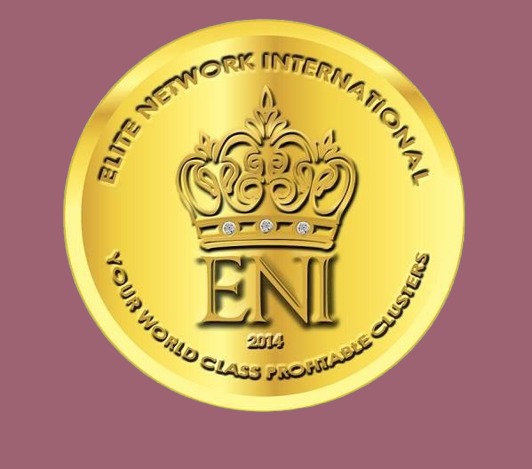
As a job seeker, you likely have many questions on your mind, whether you’re preparing to apply for a job, waiting for a response, or getting ready for an interview. Whatever your question may be, we’ve got you covered. Here, you can find answers to all the questions that come to mind throughout your job search journey.
Here are some of the top questions job seekers typically ask before applying to a job, along with answers that could help them make an informed decision:
1. What does the job entail?
- Answer: Review the job description for detailed information on daily responsibilities, key tasks, and expectations for the role.
2. What are the required qualifications and skills?
- Answer: Look for a list of qualifications and skills in the job posting, including education, experience, and specific technical or soft skills.
3. What is the company culture like?
- Answer: Research the company’s website, social media, and employee reviews on sites like Glassdoor to understand their values, work environment, and culture.
4. What are the opportunities for career growth?
- Answer: Look for information on career advancement opportunities in the job description or company website. Consider reaching out to current or former employees on LinkedIn for insights.
5. What is the salary range for this position?
- Answer: If not listed in the job posting, research industry salary standards for the role and location on sites like Glassdoor, PayScale, or LinkedIn Salary.
6. What benefits does the company offer?
- Answer: Check the job listing or company website for details on benefits such as health insurance, retirement plans, paid time off, and any additional perks.
7. What is the work schedule and flexibility?
- Answer: Understand the expected working hours, remote work options, and any flexibility the company offers. This information might be in the job description or company website.
8. Who will I be working with?
- Answer: Look for information on the team structure, key stakeholders, and your potential manager. Company websites often have team pages, or you can ask during the interview process.
9. What is the company’s mission and vision?
- Answer: Review the company’s mission statement and vision on their website to ensure it aligns with your values and career goals.
10. How stable is the company?
- Answer: Research the company’s financial health, recent news, and growth trends. Look at reports, press releases, and industry analysis.
11. What is the hiring process like?
- Answer: Understand the stages of the hiring process (e.g., phone interview, in-person interview, assessment tests) to prepare accordingly. This might be detailed in the job posting or can be clarified by the recruiter.
12. Why is this position open?
- Answer: This can provide context on the role’s history and the company’s needs. Ask during an interview to gain more insight.
13. What is the company’s approach to professional development?
- Answer: Look for information on training programs, mentorship opportunities, and support for continuing education.
14. What are the performance expectations and metrics?
- Answer: Understand how success is measured in the role. This may be outlined in the job description or discussed during the interview process.
15. How does the company support work-life balance?
- Answer: Research company policies on work-life balance, flexible working hours, remote work options, and employee wellness programs.
16. What is the company’s diversity and inclusion policy?
- Answer: Review the company’s commitment to diversity and inclusion, which can often be found on their website or corporate social responsibility reports.
17. What are the potential challenges in this role?
- Answer: Ask this during an interview to get an honest assessment of the difficulties you might face and see if they match your experience and skills.
18. Who are the company’s main competitors?
- Answer: Understand the competitive landscape to gauge the company’s position in the industry and how it differentiates itself.
19. What technologies and tools will I be using?
- Answer: The job description may list specific tools and technologies required for the role. This can help you assess if your skills align with the job requirements.
20. What is the onboarding process like?
- Answer: Look for information on how new employees are integrated into the company, including training programs and support systems.
Here are some of the top questions job seekers often ask after applying to a job and getting an appointment for an interview, along with their answers:
1. What should I bring to the interview?
- Answer: Bring multiple copies of your resume, a list of references, a notepad and pen, and any work samples or portfolios if relevant. Also, prepare any documents the employer specifically requested.
2. How should I dress for the interview?
- Answer: Dress professionally, typically in business attire, unless advised otherwise. When in doubt, it’s better to be slightly overdressed than underdressed.
3. Who will be interviewing me?
- Answer: Clarify the names and roles of the people who will be interviewing you. This helps you prepare appropriately and personalize your responses.
4. How long will the interview last?
- Answer: Ask for an estimated duration of the interview so you can plan your schedule accordingly. This also helps you manage your time during the interview.
5. Where exactly is the interview location?
- Answer: Confirm the exact address, floor, and room number if applicable. Arrive a bit early to account for any unforeseen delays.
6. Is there any specific material I should review before the interview?
- Answer: Ask if there are any documents, company information, or projects you should review in advance to be better prepared for the discussion.
7. What can I expect during the interview process?
- Answer: Inquire about the structure of the interview (e.g., one-on-one, panel, technical assessment) to prepare accordingly.
8. Will there be any tests or assessments?
- Answer: Confirm if there will be any skill tests, personality assessments, or technical evaluations as part of the interview process.
9. Can I get a brief overview of the company’s culture?
- Answer: Ask for insights into the company culture to understand if it aligns with your values and working style.
10. What are the next steps after the interview?
- Answer: Ask about the timeline for making a decision and what the next steps in the hiring process will be.
11. How should I follow up after the interview?
- Answer: Clarify the preferred method and timing for follow-up communication to express your continued interest in the position.
12. Are there specific questions you recommend I prepare for?
- Answer: Asking this can provide hints about the key areas the interview will focus on, allowing you to better prepare.
13. What should I know about the team I’ll be working with?
- Answer: Gain insights into the team dynamics, size, and key team members to understand how you might fit into the group.
14. What is the company’s approach to employee development?
- Answer: Learn about opportunities for professional growth, training programs, and career advancement within the company.
15. What are the company’s main goals and challenges currently?
- Answer: Understanding the company’s current focus and challenges can help you tailor your responses to show how you can contribute to their success.
16. How does this position contribute to the company’s success?
- Answer: This helps you understand the importance of the role and how you can make a meaningful impact.
17. Can you tell me more about the work environment?
- Answer: Inquire about the day-to-day work environment, including team interactions, workspace setup, and company policies on remote work.
18. What is the typical career path for someone in this role?
- Answer: Gain insights into potential career progression and opportunities for advancement within the company.
19. What are the biggest challenges someone in this position might face?
- Answer: Understanding potential challenges helps you prepare to address how you would handle them during the interview.
20. What is the company’s policy on work-life balance?
- Answer: Learn about policies and practices related to work-life balance to ensure they align with your personal and professional needs.
